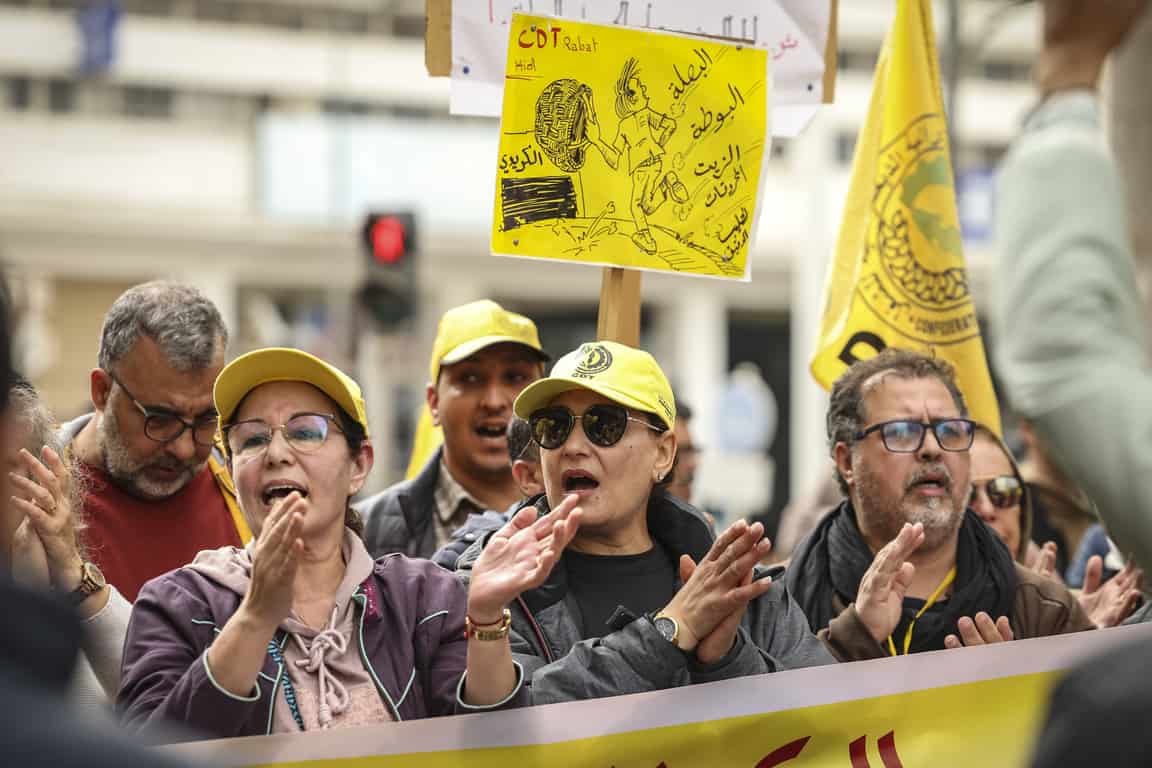Rabat, Morocco–Moroccan trade union activists protested Sunday in the capital Rabat and other cities to denounce surging costs of food and fuel, defying a government ban against marches.
Protesters from the Democratic Labour Confederation (CDT) staged rallies outside their offices in Rabat and Casablanca as well as other cities “following the decision of the authorities to ban marches”, senior CDT member Rajae Kassab said.
Morocco banned marches due to a “health state of emergency” put in place during the Covid-19 pandemic and still in force, according to a letter from the interior ministry to CDT, which was seen by AFP.
In Rabat, several dozen demonstrators surrounded by police officers chanted slogans against “the deterioration of purchasing power”.
“We came… to alert officials to the tense social situation,” CDT official Rachid Lemhares told AFP.
Also read: Morocco’s economy to grow 6.3% in 2021, says IMF
Morocco has seen months of rising prices and growing calls for caps on energy firms’ profits. Soaring costs of food in recent days have provoked stiff criticism from trade unions, the opposition and the media.
Inflation peaked at 8.3 percent at the end of 2022, fuelled by the effects of the war in Ukraine and shifts in global supply chains, according to the World Bank.
Rabat has blamed recent price increases on speculation on basic goods, and government spokesman Mustapha Baitas on Thursday announced the seizure of 192 tonnes of such products.
Prime Minister Aziz Akhannouch has promised to “strengthen market control” and lower prices in the coming days, and subsidies have been issued for basic necessities such as petrol, gas and flour.








